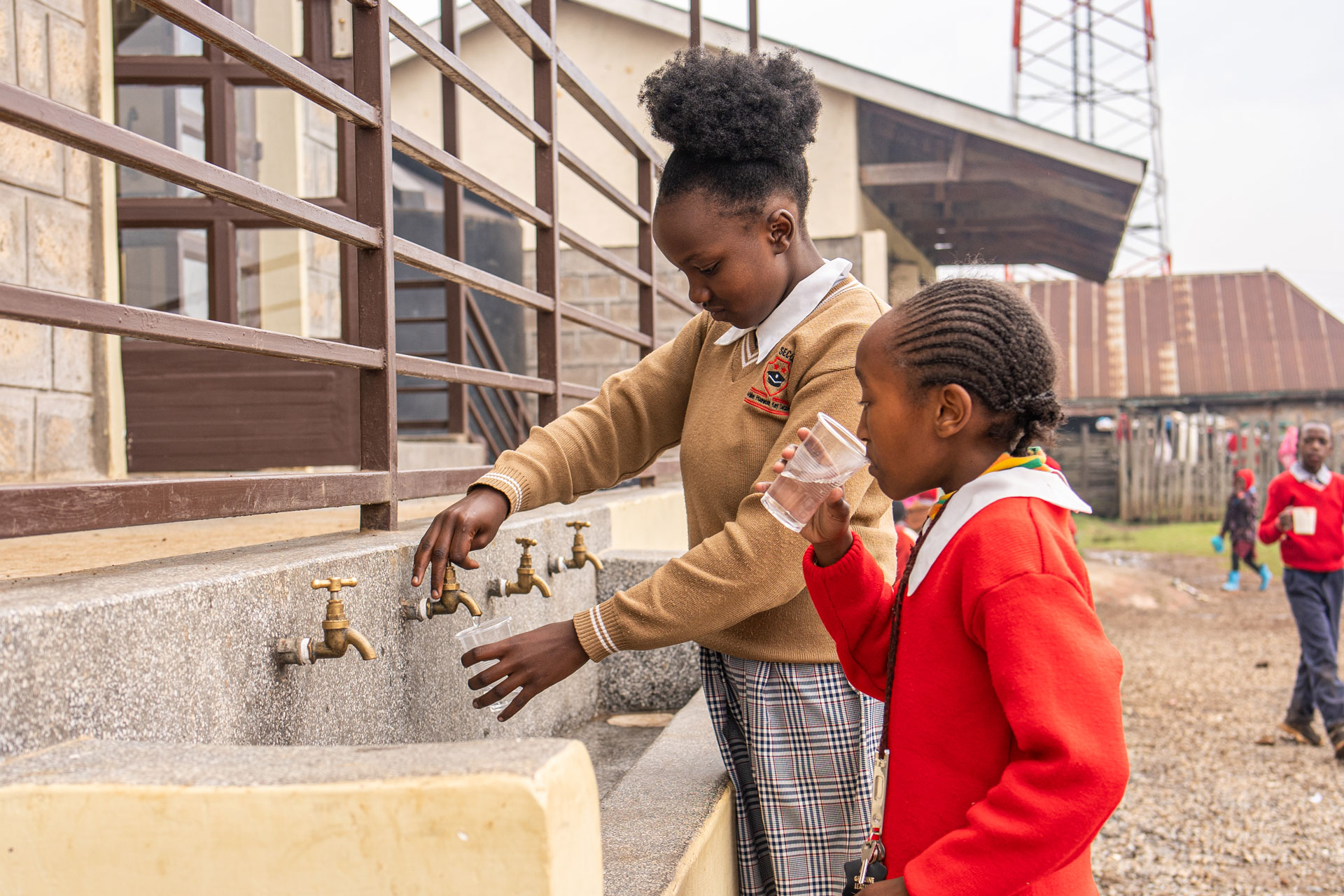The Need
Without access to essential Water, Sanitation, and Hygiene (WASH) infrastructure and resources at school, students face significant risks to their health and well-being. However, the majority of public primary schools in rural Kenya, lack adequate resources and infrastructure to meet UNICEF’s global guidance standards for WASH in schools.

Our Approach
By introducing our School Meals Program, scaffolded by quality, eco-friendly kitchens and improved access to WASH facilities, we are reducing hunger as a barrier to learning and strengthening an infrastructure for student health.
Through the delivery of ingredients and the introduction of coordinated investments in quality infrastructure — including new kitchens and improved WASH (Water, sanitation, and hygiene) facilities — Flying Kites is supporting student health and providing a foundation for the long-term self-sufficiency and sustainability of school-based School Meals Programs.
What we do
In support of student health and well-being, we invest in infrastructure improvements in primary schools to provide:
Kitchens & School Meals
We construct eco-friendly, energy-efficient kitchens for all nine schools in our School Network to support the safe preparation of daily meals for 5,101 students and provide healthy environments for school cooks.
Drinking Water
We drill boreholes, install piping systems, and provide water storage tanks. These measures help ensure that students, teachers, and staff have constant access to water that is free from contaminants. Additionally, we construct community access taps near the schools’ boreholes to provide the wider community with access to clean and safe drinking water as well.
Student Bathrooms
We construct and/or refurbish student bathrooms, ensuring that they meet hygiene standards, provide privacy, and are accessible to all students, including those with disabilities. Student bathrooms also include handwashing stations that are easily accessible, adequately supplied with soap, and well-maintained.
Impact Highlights
Community Boreholes:
By drilling two community boreholes at Mucibau Primary School and Heni Primary School, we provided 6,187 community members – and thousands more for generations to come – with access to safe and reliable drinking water.
Student Bathrooms:
By constructing new student bathrooms at Mucibau Primary School, Karati Primary School, and Chania Primary School, we provided 2,025 boys and girls with single-sex, functional, and private toilets.
Student Enrollment & Attendance:
914,580 school meals were served to 5,101 students in 2024. Since introducing school meals across our School Network, we have observed steady rates of enrollment year-on-year. Average student attendance across all Network schools during the 2024 Academic Year was 95%.
Piped Water Systems:
By installing piped water systems in all nine schools in our School Network, we provided access to water required for drinking and for cooking daily, nutritious meals for all 5,099 students in our Network.
TeacherThe availability of clean water will solve the challenges we have been going through such as water-borne diseases, unhygienic conditions, and shortage of reliable clean water to drink. Currently, we are experiencing a great shortage of water due to the fire tragedy that occurred at the Heni Health Center which damaged the water source we have been relying on. A properly sunk borehole in the Heni School will bring numerous benefits transforming the lives of students, teachers, and members of the community.”
Teacher Mucibau Primary






